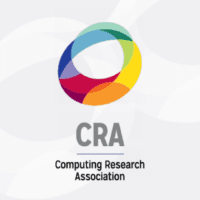CCC Council Members Discuss Upcoming SuperComputing Conference Panel
By Petruce Jean-Charles, Communications Associate, CCC
CCC is pleased to announce that council members Michela Taufer and Chandra Krintz published an article in Inside AI News to discuss their upcoming panel at the 2024 Supercomputing Conference. As members of the Task Force on Sustainability and Climate Resilence, they are excited to be given a platform at the SC24 conference.
Here is a sneak peek at one of the questions they encourage leaders to consider before this panel discussion in November.
How can AI continue to drive innovation while minimizing environmental harm?
By now, we can all agree that AI has enormous potential, but we must ask ourselves whether the growing environmental cost of scaling AI is undermining its benefits. Large language models like GPT or BERT require vast computational resources and, thus, enormous amounts of energy. A single query to ChatGPT consumes approximately ten times more energy than a traditional Google search. These operations are taking place in expansive data centers consuming increasing energy. As AI continues to evolve, its energy demands and associated carbon footprint threaten to undermine the benefits that it promises to deliver.
There is a tendency for individuals to throw up their hands and decide that problems such as these are too big for them to solve, but a grassroots effort could be a critical place to start. This looming peril calls for a concerted effort from the HPC community to prioritize energy efficiency in AI system design down to the code, where energy-efficient hardware architectures are combined with optimized algorithms that mitigate the impact of AI on carbon output. This means developing a workforce that understands the system-level implications of AI training, including power consumption, data movement, and their associated costs. Instead of focusing solely on advancing AI’s capabilities, it’s important to prioritize these AI systems’ efficiency to achieve a sustainable balance.
The communities engaged in developing AI must be cognizant that while innovation is the aim, achieving balance is critical. They are responsible for ensuring that future AI technologies not only solve complex problems but also do so with minimal environmental impact.
Read the full article here.
Interested in attending this panel? You can register here.









